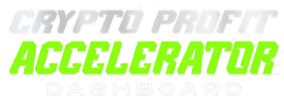Toyota is reimagining cars as blockchain-based assets. By tokenizing vehicles and fleets, the company hopes to change how mobility is owned, financed, and insured globally.
This initiative reflects a broader industry shift toward digital infrastructure for managing vehicle data and ownership. Toyota’s focus is on service-driven use cases rather than speculative crypto models.
Key Takeaways
-
Toyota’s Mobility Orchestration Network (MON) turns vehicles into real-world digital assets.
-
Cars could be represented as NFTs or tokens—tradeable, investable, and programmable.
-
Blockchain enables secure data sharing, benefiting insurance, finance, and EV services.
-
Toyota is working with Avalanche and experimenting with Ethereum.
-
Key challenges include privacy, regulation, cybersecurity, liquidity, and adoption.
What Is Vehicle Tokenization?
Vehicle tokenization means representing a car digitally on a blockchain. That digital token could contain registration, service history, and performance data—making it transferable, financeable, and usable in connected services.
Toyota’s Mobility Oriented Account (MOA) manages this data through two channels: one for legal and financial information (like ownership and insurance), and one for operational data (like mileage or battery health). This structure keeps sensitive information private but verifiable when needed.
Toyota’s Mobility Orchestration Network uses a concept called the Fungibility Ladder to make vehicle value more liquid. It starts with a car’s ownership recorded as a unique NFT. These NFTs can be grouped into portfolios based on shared traits—like region or model—creating semi-fungible bundles. From there, fully fungible security tokens can be issued, backed by the portfolio’s value.
Toyota’s Blockchain Strategy
At the core is the Mobility Orchestration Network (MON), which unifies fragmented vehicle data and builds trust in how mobility is recorded and exchanged.
Today, car data is split among governments, insurers, and manufacturers. MON consolidates these into a single, portable digital identity—making cars easier to value, trade, or finance. Rather than replacing existing systems, MON connects them using a shared protocol that respects local infrastructure.
Global interoperability is another focus. Legal and insurance systems vary across regions. Toyota’s model allows each region to run its own MON instance, while still sharing trusted records across borders.
Real-World Applications
Tokenized vehicles could change how cars are bought, rented, and financed. Usage rights or ownership could be transferred instantly on-chain. Fleet operators might securitize assets by bundling vehicles into digital investment products.
On the insurance side, verified service records would simplify claims and allow for dynamic, real-time pricing. Lenders could offer tailored loan terms based on driving behavior or vehicle health.
Mobility-as-a-Service also becomes more flexible. Vehicles could autonomously manage rentals, payments, and charging. With standardized blockchain records, regulators and service providers could collaborate more efficiently.
Toyota’s Blockchain Experiments
Toyota Blockchain Lab is running MON on Avalanche, enabling real-time data handling crucial for smart mobility.
In parallel, Toyota is experimenting with Ethereum features like ERC-4337 and account abstraction. These allow for programmable smart accounts and NFT-based vehicle rights—enabling advanced use cases such as autonomous cars handling rentals and payments without human intervention.
Using both Avalanche and Ethereum provides flexibility: Avalanche offers performance, while Ethereum brings a mature developer ecosystem.
Key Challenges
There are major hurdles. Privacy and data governance must be balanced with transparency—especially as cars produce large volumes of sensitive information.
Regulatory fragmentation also poses challenges. Laws on insurance, taxation, and registration differ by region, and aligning them won’t be simple.
Liquidity remains uncertain. Vehicle tokens will need active markets to hold value. Without that, investor interest may wane.
Cybersecurity is critical. Tokenized vehicles must be protected from data breaches and remote access vulnerabilities. Public trust will depend on security and transparency.
Adoption is another hurdle. Toyota can’t build this system alone. Regulators, insurers, and automakers will need to collaborate and gradually integrate these frameworks into their operations.
Conclusion
Toyota’s blockchain strategy moves beyond experimentation. By treating vehicles as programmable digital assets, the company is laying the foundation for more flexible, efficient, and transparent mobility systems.
If successful, this shift could change how vehicles interact with finance, insurance, and public infrastructure. The car of the future won’t just drive—it could transact, verify, and operate independently across digital networks.
Toyota explores blockchain to tokenize cars, enabling secure ownership, data sharing, and smart mobility services across global digital networks.

